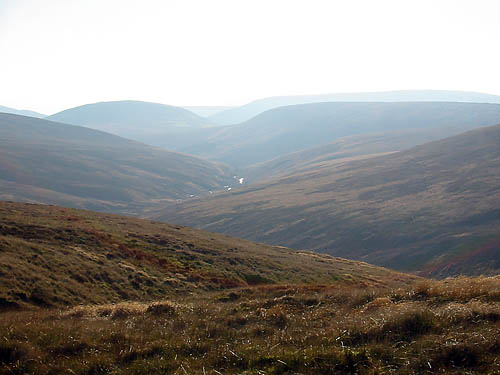A water company is planning to charge for access to its extensive right-to-roam areas.
United Utilities (UU), which owns about 58,000 hectares (143,300 acres) of land in north-western England, says it will start charging up to £50 for commercial groups using its property. In addition, £1 per person involved will be payable.
The Forest of Bowland, right. United Utilities owns tracts of land in the area.
The British Mountaineering Council (BMC) says the scheme sets a dangerous precedent for the outdoor industry. It says United Utilities, formed by a merger of North West Water and Norweb, is interpreting the Countryside and Rights of Way (CRoW) Act in a contentious way. The company inherited previously publicly owned land during the privatisation of England and Wales’s utility companies.
Among the jewels in UU’s trinket box are Ennerdale, Haweswater and Thirlmere in the Lake District, the Goyt valley and Longdendale in the Peak and large tracts of Bowland in Lancashire. Much of the land is designated access land under the CRoW Act.
The BMC and Mountain Leader Training England met representatives from the company and expressed their concern. The BMC says there is debate about the legality of the move. UU says it wants to compile a database of groups, centres and instructors using its land and start charging them. It wants to license such users, requiring them to outline the activity, a list of participants, risk assessments and insurance details. It will charge between £30 and £50 administration charge for this, as well as £1 per participant.
The BMC says: “Charging for access goes against a fundamental principle of the BMC – access for all – and we intend to continue working with partners and contacts to ensure UU are fully aware of the strength of feeling from the outdoor community on this.”
The situation in Scotland, covered by the superior Land Reform (Scotland) Act is different, where commercial activities are allowed on access land.
Outdoor centres and individual instructors would be expected to buy an annual licence and supply details of their income generated from activities on UU land and the proportion of charitable, educational and commercial work they do.
UU says it does not intend to target individual walkers, climbers and clubs. The scheme is likely to hit voluntary organisations such as the Scout Association which use commercial providers to train their volunteers on courses such as Mountain Leader and Walking Group Leader awards and the Single Pitch Award in climbing. Increased costs to the outdoor centres would inevitably be passed on to the voluntary groups.